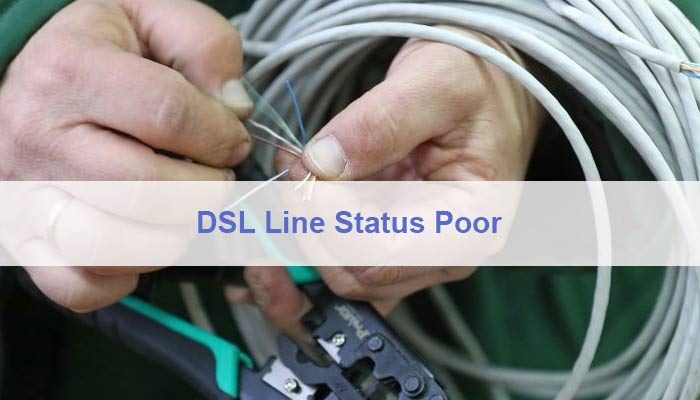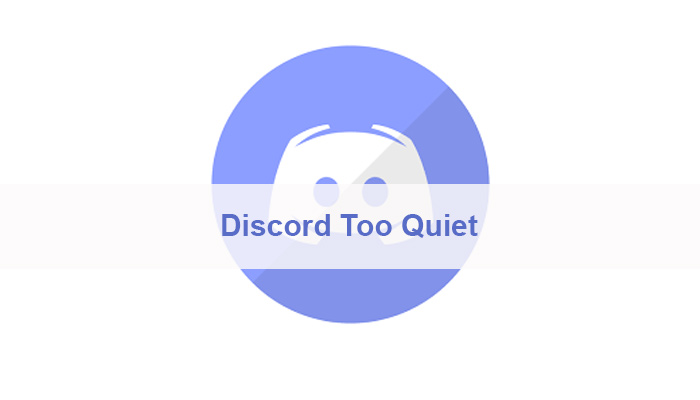Debt can make you feel like you’re completely alone in the world. It can feel like a snake wrapped around you, squeezing and squeezing until it seems like you’re going to burst. First of all, take a deep breath—whatever dilemma you’re facing, whatever financial situation you’re in: it’s okay.
There is going to be a solution that works for you. Moreover, acknowledge right here and now that you are not the same thing as your financial situation; you’re not. You and money are two separate things, and whatever the financial circumstances or challenges you find yourself in, they are not a reflection of who you are.
Beyond this, reading about debt online can sometimes just add to the stress—comment sections, in particular, can be full of harsh words, sob stories, and the like. The following is going to explore different aspects of debt and offer some guidelines to help you navigate the murky waters of dealing with debt (especially considering that people don’t like talking about it.)
Of course, everyone’s financial situation and needs are going to be a little bit different. Be sure to take the below information and couple it with an understanding of your particular context and wants and needs. If you don’t understand how it applies to you, most financial advisors, credit counselors, and mental health professionals.
Debt Is Nothing New
Take another breath and remind yourself that debt is nothing new. In the UK, the average debt per adult is £31,798; in America, the average debt per adult is $90,460; in Canada, it’s $72,950. As nasty as the idea is, debt is something that people all throughout human history have had to deal with; it’s part of the human experience. Even if you feel like you’re the only one, you’re not. Far from it. Almost certainly, someone you know who seems to have it all together has more debt than you do.
Mental Health Check-Up
Debt can be a stressful thing. It can lead to anxiety, feelings of depression, or worthlessness. It can suck the joy out of everyday activities and result in weaker performance at work. It can cause relationship problems. It can hurt our mental and emotional health. If you need help with any of these symptoms of debt, reach out to a mental health professional. There are endless free phone lines you can call for mental support when you need it, and having another person to talk to can really help ease the burden of it all. If you or someone you know is having thoughts of self-harm due to debt situations, it is urgent that you reach out for help before anything else is done.
Bankruptcy
Let’s talk about the big one first because you know it’s coming, and we know it’s coming, so let’s rip the bandaid off first and talk about bankruptcy. Bankruptcy is the process whereby you admit that you’re in too deep and you don’t think it’s possible to get out on your own.
This is an excellent choice for some people, particularly those who are only making payments on the interest they owe (thereby not actually making a dent in the debt itself). Meeting with a credit counselor (many of whom offer a free consultation, so you don’t need to worry about paying for it) is a must if you’re considering this route so they can break down the process of declaring bankruptcy for you. They’ll be able to take a look at what you owe, your assets and give you a good idea of what is likely to happen should you decide to proceed with bankruptcy.
If you’re feeling uneasy about this route because it feels like failing or is something you consider embarrassing, take another breath and understand that someone declares bankruptcy or insolvency every five minutes in the UK.
Taking On New Debts For School
Maybe you’re not struggling with debt but are considering taking some on. There are lots of reasons people decide to take on debt, including educational goals, buying a home, or starting up a business. If this is the case, you’re going to want to take a look at your income and get real honest with yourself about what you can expect to make in the future.
This is a particularly brutal thought process to go through if you’re considering taking on debt to attend schooling. You have to understand that universities and colleges are, on some level, a business—this means it’s in their best interest to have you enroll. Don’t trust school websites for statistics about employment after graduation.
Think about it. Someone graduating from a master’s program in business who’s managing a fast-food restaurant making just above minimum wage is technically employed in their field. Schools love to boast that 80% of graduates are working in their field, but this actually means almost nothing.
Do research on career choices outside of the educational institution as well as read up predictors about what is expected to be booming in the future. Yes, radiation technology is a solid, stable career right now, but this is one of the first career paths expected to disappear due to automation, meaning it might not exist in ten years. Do your research on what a degree or certificate will actually help you get. Scroll through job boards and read the requirements for the positions you’d like to get. You might be shocked to find that you don’t actually need that degree, or you need a completely different degree than you’d previously thought.
Taking On A Mortgage Debt
When it comes to taking on debt in order to own a home, things can get even more emotional. A home can be the center of your daily life; it can be where you raise a family, where you spend your days, where you hide out when the world gets too crazy for your liking. Because of this, it’s easy to get side-swept into a mortgage that isn’t financially feasible or comfortable (yes, they probably shouldn’t be giving out mortgages to people who are going to feel like they’re drowning as they try to make payments for the next twenty-five years, but they do).
You want to start the mortgage process not on a realtor’s listings site or in the newspaper looking at houses for sale, but with the numbers. Begin with an amortization calculator and sit and figure out what you can pay each month comfortably. Not just that, but what you can pay each month in addition to dealing with needing a root canal in September and your car breaking down in November, and a burst pipe in January. If you’re sacrificing and struggling each month to meet your mortgage payments, the situation might not be right for you. Think about the stress you are agreeing to take on for the next twenty-five years.
Do you want to be anxious for the next quarter of your life? How will this mortgage affect the quality of living in the house? Will you have the money to make repairs when they’re needed? Will you be able to handle emergencies and still pay your mortgage? If you are a senior age 62+ you may find comfort in eliminating your mortgage payment altogether by utilizing a federally insured HECM loan. Get an idea of how much you can get at ReverseMortgageReviews.org/Calculator.
Taking On Debt For A Business
This one is especially tricky because the feasibility of the option depends integrally on your business plan, the location you’ll be in, and your expertise. This sort of choice needs lots of market research; months of research before you take the dive, and you need to be incorporated at the very least. This will protect your personal assets and financial situation in the event that your business doesn’t thrive.
Tackling Your Debt
Maybe you’re not looking to take on any more debt or thinking about bankruptcy, but you do want to get a firmer hold on your debt. It turns out that there are a few methods that have consistently proven helpful to people. First and foremost, you’re going to want to get on top of all the necessary information. You need a list of all your debts, the interest rates, and the dates that you’re supposed to be making payments on. You also need a clear understanding of your income and bills and spending. This doesn’t mean you need to budget right from the get-go, but you should start tracking your expenses. Write them all down. Don’t judge yourself (yet); don’t make changes (yet); just get a firm grasp on where your money is going.
Once you know what you owe and what you’re making and what you’re spending, it’s time to make a plan of action. The snowball method is a fantastic option that thousands of people around the world have found success with. It involves breaking down your debts into priorities and choosing the order you pay things off based on interest rates and genuine savings long term.
A common error that occurs when people want to get out of debt is that they toss every spare cent they have onto the debt, hoping to get free faster, but one pricey mishap like the muffler falling off your car or the air conditioning unit breaking down in August has you turning back to credit to make ends meet. It is recommended that you pay your minimums but nothing extra until you’ve saved up a $1000 emergency fund. This will help protect you when you really begin attacking your debts using the snowball method.
Do The Psychological Work
Almost always, solving the physical, outside world problems is only half of the battle. Particularly when it comes to financial struggles, our upbringing, mental states, expectations, and worldview all play an integral part in finding ourselves in a healthy financial space (or an unhealthy one). Take an hour or so to sit quietly and think about money. Pay attention to the feelings that arise when you do. Note down any thoughts you have. There is such a thing as a poverty mindset, and it involves recurring concepts that can cause damage to your wellbeing if you whole-heartedly accept them. Look out for any thoughts that arise like:
- It doesn’t matter how much I save; I’ll never be financially secure
- The second I make money, the car breaks
- I’m not the sort of person who could be financially stable
- I have to be bad or evil to make money
- I have to become a workaholic and ignore my family to have money
- Rich people are bad; poor people are good
Take a second to ask yourself whether those thoughts are true or false? Look for examples that disprove them. Oprah seems like a lovely person who does a ton of charity work and really works her hardest to bring positivity and kindness, and understanding into the world. She’s pretty wealthy as well. Do you know someone who makes ends meet and still has time to play with their kids? If you don’t seek them out on the internet, there’s a whole bunch of folks using the “slow living” hashtag on Instagram. Find examples that prove these thoughts wrong.
Yes, this might sting sometimes. It might bring up memories of your parents saying we can’t afford that or arguing about the bills. You might have had truly traumatic experiences surrounding money like going hungry or not having a place to sleep that have crafted these self-limiting beliefs. We’re not saying you need to revel in these memories, but it’s crucial to become aware that these negative self-beliefs are coming from less than ideal moments in our pasts.
The above tips should help you get a firmer grasp on your debt situation. You might feel pressured or rushed to make a choice or change things immediately, but it’s crucial that you take some deep breaths and do all your research before making a decision. The only bad choice is a poorly researched one. Take your time to filter through all the information, speak to people who have professional experience who can break down all the options available to you, sleep on all choices, and discuss anything you need to with your partner or spouse because not all financial choices are single-person discussions.








